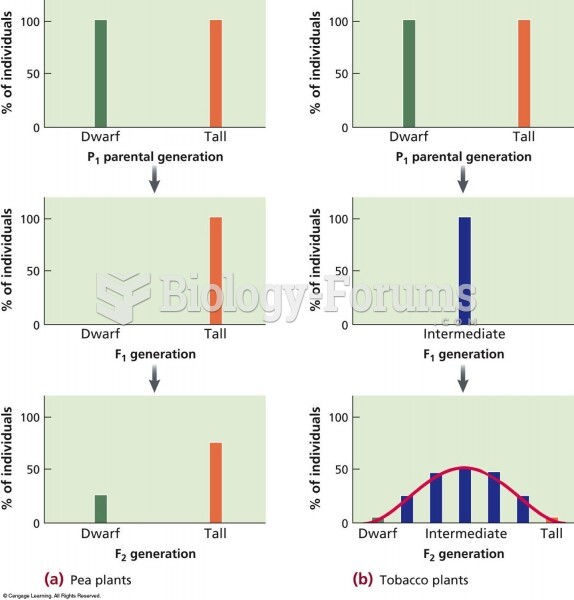|
|
|
Historic treatments for rheumatoid arthritis have included gold salts, acupuncture, a diet consisting of apples or rhubarb, nutmeg, nettles, bee venom, bracelets made of copper, prayer, rest, tooth extractions, fasting, honey, vitamins, insulin, snow collected on Christmas, magnets, and electric convulsion therapy.
Although the Roman numeral for the number 4 has always been taught to have been "IV," according to historians, the ancient Romans probably used "IIII" most of the time. This is partially backed up by the fact that early grandfather clocks displayed IIII for the number 4 instead of IV. Early clockmakers apparently thought that the IIII balanced out the VIII (used for the number 8) on the clock face and that it just looked better.
About 600,000 particles of skin are shed every hour by each human. If you live to age 70 years, you have shed 105 pounds of dead skin.
Giardia is one of the most common intestinal parasites worldwide, and infects up to 20% of the world population, mostly in poorer countries with inadequate sanitation. Infections are most common in children, though chronic Giardia is more common in adults.
Pope Sylvester II tried to introduce Arabic numbers into Europe between the years 999 and 1003, but their use did not catch on for a few more centuries, and Roman numerals continued to be the primary number system.
 An adult male killer whale with its characteristic tall dorsal fin swims in the waters near Tysfjord
An adult male killer whale with its characteristic tall dorsal fin swims in the waters near Tysfjord
 Charles Darwin may be dead and gone but a recent write-in campaign has pitted him against Republican
Charles Darwin may be dead and gone but a recent write-in campaign has pitted him against Republican
 In 1891 William Dean Howells championed the poetry of Emily Dickinson: “This poetry is as characteri
In 1891 William Dean Howells championed the poetry of Emily Dickinson: “This poetry is as characteri




